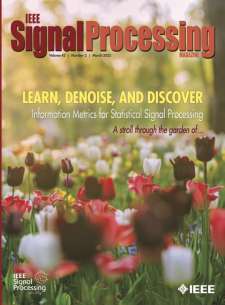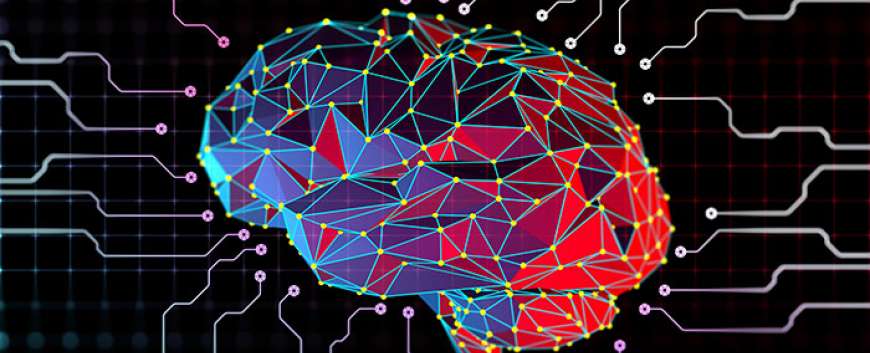- Our Story
- Publications & Resources
- Publications & Resources
- Publications
- IEEE Signal Processing Magazine
- IEEE Journal of Selected Topics in Signal Processing
- IEEE Signal Processing Letters
- IEEE Transactions on Computational Imaging
- IEEE Transactions on Image Processing
- IEEE Transactions on Information Forensics and Security
- IEEE Transactions on Multimedia
- IEEE Transactions on Signal and Information Processing over Networks
- IEEE Transactions on Signal Processing
- IEEE TCI
- IEEE TSIPN
- Data & Challenges
- Submit Manuscript
- Guidelines
- Information for Authors
- Special Issue Deadlines
- Overview Articles
- Top Accessed Articles
- SPS Newsletter
- SigPort
- SPS Resource Center
- Publications FAQ
- Blog
- News
- Dataset Papers
- Conferences & Events
- Community & Involvement
- Professional Development
- For Volunteers
- Information for Authors-OJSP
-
Home
Conferences Events IEEE Signal Processing Magazine IEEE SPL Article IEEE TIFS Article IEEE TMM Article IEEE TSP Article Jobs in Signal Processing Lectures Machine Learning Seasonal Schools Signal Processing News SPM Article SPS Distinguished Lectures SPS Newsletter Article SPS Webinar SPS Webinars SPS Webinar Series Webinar webinars
-
Our Story
What is Signal Processing?

The technology we use, and even rely on, in our everyday lives –computers, radios, video, cell phones – is enabled by signal processing. Learn More » -
Publications & Resources
-
SPS Resources
- Signal Processing Magazine The premier publication of the society.
- SPS Newsletter Monthly updates in Signal Processing
- SPS Resource Center Online library of tutorials, lectures, and presentations.
- SigPort Online repository for reports, papers, and more.
- SPS Feed The latest news, events, and more from the world of Signal Processing.
-
SPS Resources
-
Conferences & Events
-
Community & Involvement
-
Membership
- Join SPS The IEEE Signal Processing Magazine, Conference, Discounts, Awards, Collaborations, and more!
- Chapter Locator Find your local chapter and connect with fellow industry professionals, academics and students
- Women in Signal Processing Networking and engagement opportunities for women across signal processing disciplines
- Students Scholarships, conference discounts, travel grants, SP Cup, VIP Cup, 5-MICC
- Young Professionals Career development opportunities, networking
- Get Involved
-
Technical Committees
- Applied Signal Processing Systems
- Audio and Acoustic Signal Processing
- Bio Imaging and Signal Processing
- Computational Imaging
- Image Video and Multidimensional Signal Processing
- Information Forensics and Security
- Machine Learning for Signal Processing
- Multimedia Signal Processing
- Sensor Array and Multichannel
- Signal Processing for Communication and Networking
- Signal Processing Theory and Methods
- Speech and Language Processing
- Technical Working Groups
- More TC Resources
-
Membership
-
Professional Development
-
Professional Development
- Signal Processing Mentorship Academy (SigMA) Program
- Micro Mentoring Experience Program (MiME)
- Distinguished Lecturer Program
- Distinguished Lecturers
- Distinguished Lecturer Nominations
- Past Lecturers
- Distinguished Industry Speaker Program
- Distinguished Industry Speakers
- Distinguished Industry Speaker Nominations
- Industry Resources
- IEEE Training Materials
- Jobs in Signal Processing: IEEE Job Site
-
Career Resources
- SPS Education Program Educational content in signal processing and related fields.
- Distinguished Lecturer Program Chapters have access to educators and authors in the fields of Signal Processing
- Job Opportunities Signal Processing and Technical Committee specific job opportunities
- Job Submission Form Employers may submit opportunities in the area of Signal Processing.
-
Professional Development
-
For Volunteers
-
For Board & Committee Members
- Board Agenda/Minutes* Agendas, minutes and supporting documentation for Board and Committee Members
- SPS Directory* Directory of volunteers, society and division directory for Board and Committee Members.
- Membership Development Reports* Insight into the Society’s month-over-month and year-over-year growths and declines for Board and Committee Members
-
For Board & Committee Members
Popular Pages
Today's:
- Information for Authors
- (ICME 2026) 2026 IEEE International Conference on Multimedia and Expo
- Submit a Proposal for ICASSP 2030
- IEEE Transactions on Information Forensics and Security
- Access Restricted
- Submit a Manuscript
- IEEE Transactions on Multimedia
- Conference Call for Papers
- IEEE Transactions on Image Processing
- Information for Authors-SPL
- IEEE Signal Processing Letters
- IEEE Journal of Selected Topics in Signal Processing
- (ASRU 2025) 2025 IEEE Automatic Speech Recognition and Understanding Workshop
- IEEE Transactions on Signal Processing
- Unified EDICS
All time:
- Information for Authors
- Submit a Manuscript
- IEEE Transactions on Image Processing
- IEEE Transactions on Information Forensics and Security
- IEEE Transactions on Multimedia
- IEEE Transactions on Audio, Speech and Language Processing
- IEEE Signal Processing Letters
- IEEE Transactions on Signal Processing
- Conferences & Events
- IEEE Journal of Selected Topics in Signal Processing
- Information for Authors-SPL
- Conference Call for Papers
- Signal Processing 101
- IEEE Signal Processing Magazine
- Guidelines
Last viewed:
- Learning Nonlocal Sparse and Low-Rank Models for Image Compressive Sensing: Nonlocal sparse and low-rank modeling
- Digital Signal Processing: System Analysis and Design (2010)
- Leveraging Variational Autoencoders for Parameterized MMSE Estimation
- IEEE Transactions on Information Forensics and Security
- Publications
- Bayes’ Rule Using Imprecise Probabilities
- For Volunteers
- SPS Webinar: 26 January 2022, by Dr. Ba-Ngu Vo - Bayesian Multi-object Tracking: Probability Hypothesis Density Filter and Beyond
- (ICME 2026) 2026 IEEE International Conference on Multimedia and Expo
- Self-Supervised Representation Learning: Introduction, advances, and challenges
- Information for Authors
- 2016 Data Compression Conference (DCC 2016)
- (ICASSP 2028) 2028 IEEE International Conference on Acoustics, Speech, and Signal Processing
- IEEE Transactions on Audio, Speech and Language Processing
- Conference Call for Papers
“She Changed Astronomy Forever. He Won the Nobel Prize for It.”
You are here
Publications & Resources
Signal Processing Magazine
For Authors
Top Reasons to Join SPS Today!
1. IEEE Signal Processing Magazine
2. Signal Processing Digital Library*
3. Inside Signal Processing Newsletter
4. SPS Resource Center
5. Career advancement & recognition
6. Discounts on conferences and publications
7. Professional networking
8. Communities for students, young professionals, and women
9. Volunteer opportunities
10. Coming soon! PDH/CEU credits
Click here to learn more.
“She Changed Astronomy Forever. He Won the Nobel Prize for It.”
It’s been a while since I last wrote a column for IEEE Signal Processing Magazine. I will try to address here some of the many questions and changes that arose since the beginning of the year. But before I do so, I would like to invite you to watch a short documentary by Ben Proudfoot with the exact title of this column: “She Changed Astronomy Forever. He Won the Nobel Prize for It.” This story is yet another reminder of how diversity is sine qua non for innovation. The documentary covers the discovery of pulsars in 1967 by Jocelyn Bell Burnell. Her discovery changed our view of the universe. Dr. Bell was a Ph.D. student at the time, studying under renowned astronomer Anthony Hewish. She overcame numerous barriers as the only woman in many classes and in the Ph.D. program. Her persistence and unconventional thinking led her to uncover pulsars when others saw only normal electromagnetic interference.
Despite the remarkable progress we have made since Dr. Bell was a student, lack of diversity remains one of our most pernicious and frustrating challenges in 2021. Diversity is an issue that we all profess to believe in. However, our actions often belie our declared values. Time and again this year, we were sent nomination slates for various positions, from representatives of the Society on cosponsored conferences to executive committee members that lacked technical, geographical, and gender diversity. I won’t belabor again the benefits of diversity. Nor will I detail the real systemic hurdles that more than half of mankind experiences within society, at work, home, or our own technical Society. We are all very familiar with these facts and may even be convinced that we understand them. Perhaps we do. But it appears to me that, in many cases, this understanding is abstract rather than visceral. Hence, it doesn’t reflect in our actions.
SPS Social Media
- IEEE SPS Facebook Page https://www.facebook.com/ieeeSPS
- IEEE SPS X Page https://x.com/IEEEsps
- IEEE SPS Instagram Page https://www.instagram.com/ieeesps/?hl=en
- IEEE SPS LinkedIn Page https://www.linkedin.com/company/ieeesps/
- IEEE SPS YouTube Channel https://www.youtube.com/ieeeSPS
Home | Sitemap | Contact | Accessibility | Nondiscrimination Policy | IEEE Ethics Reporting | IEEE Privacy Policy | Terms | Feedback
© Copyright 2025 IEEE - All rights reserved. Use of this website signifies your agreement to the IEEE Terms and Conditions.
A public charity, IEEE is the world's largest technical professional organization dedicated to advancing technology for the benefit of humanity.












